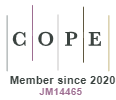Poder e norma no ciberespaço
DOI:
https://doi.org/10.5585/rtj.v11i2.22684Palavras-chave:
regulamentação da internet, lei das fake News, instrumentalização do sistema jurídico positivoResumo
Este trabalho desenvolve uma análise da conexão entre a disputa política e a produção jurídico normativa no concernente à temática dos cibercrimes com ênfase na produção e disseminação de notícias falsas (fake news) e ações de desinformação na Rede no Brasil. Apresenta uma discussão da literatura acadêmica sobre o tema, elencando fatores sociais e políticos de necessária observação para avaliação da alteração da regulação jurídica do ciberespaço, em perspectiva comparada com experiências internacionais neste campo de disputa política e produção legislativa. O estudo emprega uma metodologia qualitativa de caráter bibliográfico e documental e o acesso remoto de dados e conclui pela presença de um processo de instrumentalização do direito positivo brasileiro tendente a beneficiar a classe política, através da criação de dispositivos legais que normatizam o ciberespaço, estabelecendo critérios para responsabilização jurídica de criadores e reprodutores de conteúdo nas novas mídias digitais.
Downloads
Referências
ALÊ, Youssef. Novo Poder: democracia e tecnologia. Belo Horizonte: letramento, 2018.
AMATO, Lucas Fucci. Fake news: regulação ou metarregulação? Revista de Informação Legislativa: RIL, Brasília, DF, v. 58, n. 230, p. 29-53, abr./jun. 2021. Disponível em: https://www12.senado.leg.br/ril/edicoes/58/230/ril_v58_n230_p29
AGÊNCIA SENADO, Desinformação e fake news são entraves no combate à pandemia, aponta debate, 2021. Disponível em: https://www12.senado.leg.br/noticias/materias/2021/07/05/desinformacao-e-fake-news-sao-entrave-no-combate-a-pandemia-aponta-debate. Acesso em 17/01/2021.
BRASIL, 2º Vara Criminal de Uberlândia, Habeas Corpus 702.020.363.322, julgado em 03 de fevereiro de 2013.
CÂMARA DOS DEPUTADOS. Projeto de Lei PL 21/2020. Disponível online em: https://www.camara.leg.br/propostas-legislativas/2236340. Acesso em 25/01/2022.
CASTELLS, Manuel. O poder da comunicação. São Paulo: Paz e Terra, 2015.
COLTRO, Rafael Khalil; WALDMAN, Ricardo Libel. CRIMINALIDADE DIGITAL NO BRASIL: A PROBLEMÁTICA E A APLICABILIDADE DA CONVENÇÃO DE BUDAPESTE. Revista Em Tempo, v. 21, n. 1, p. 104-123, 2021.
DALLA GUARDA, Nicola. Governing the ungovernable: International relations, transnational cybercrime law, and the post-Westphalian regulatory state. Transnational Legal Theory, v. 6, n. 1, p. 211-249, 2015.
DE LIMA SOUZA, Sofya Godoy; TELLES, Isabella Lauro; FERREIRA, Oswaldo Moreira. RESPONSABILIDADE CIVIL E INTELIGÊNCIA ARTIFICIAL: UMA ANÁLISE DO PROJETO DE LEI Nº 5051/2019. Cadernos Camilliani e-ISSN: 2594-9640, v. 17, n. 2, p. 1960-1980, 2021.
GIBSON, William. Neuromancer. Nova Iorque: Ace Books, 1984.
HAFNER; LYON, Simon; Mathew. Where wizards stay up late: the origins of the Internet. Nova Iorque: Simon & Shuster, 1996.
JESUS; OLIVEIRA, Damásio de.; José Antônio M. Milagre. Manual de Crimes Informáticos. São Paulo: Saraiva, 2016.
LEMOS, Ronaldo. Regulamentação da internet no Brasil, in Comércio eletrônico, Ronaldo Lemos da Silva e Ivo Waisberg (orgs.) São Paulo: Revista dos Tribunais, 2001.
LEONARDI. Marcel. Fundamentos de Direito Digital. São Paulo: Revista dos Tribunais, 2019.
LESSING, Lawrence. Code and other laws of cyberspace, vension 2.0. Nova Iorque: Basic Books, 2006.
LOVELUCK. Benjamin. Redes, liberdades e controle: uma genealogia política da internet. Rio de Janeiro: Vozes, 2018.
PUTNAM, Robert D. Diplomacy and domestic politics: the logic of two-level games. International organization, v. 42, n. 3, p. 427-460, 1988.
PRESIDÊNCIA DA REPÚBLICA. LEI Nº 12.965, DE 23 DE ABRIL DE 2014. Disponível on line em: http://www.planalto.gov.br/ccivil_03/_ato2011-2014/2014/lei/l12965.htm. Acesso em 28/11/2021.
RIPOLL, Leonardo; DO CANTO, Fabio Lorensi. Fake news e" viralização": responsabilidade legal na disseminação de desinformação. Revista Brasileira de Biblioteconomia e Documentação, v. 15, p. 143-156, 2019.
RODRIGUES, Usha M.; XU, Jian. <? covid19?> Regulation of COVID-19 fake news infodemic in China and India. Media International Australia, v. 177, n. 1, p. 125-131, 2020.
SANTIAGO, Siri. Hacktivismo. Buenos Aires: Sudamericana, 2015.
SENADO FEDERAL. RELATÓRIO FINAL DA CPI DA PANDEMIA, 2021. Disponível em: https://legis.senado.leg.br/comissoes/mnas?codcol=2441&tp=4. Acesso em 17/01/2022.
ZYGMUNT. Ética pós-moderna. São Paulo: Paulus, 2006.
WIENER, N. Cybernétique et societé: L`usage humain des êtres humains. Paris: Ed. Sinótica, 1971.
WU, T. The Master Switch – The rise and fall of information empires. Nova Iorque: Knopf, 2010.
Downloads
Publicado
Como Citar
Edição
Seção
Licença
Copyright (c) 2022 Simone de Sá Rosa Figueirêdo; Elton Gomes Reis

Este trabalho está licenciado sob uma licença Creative Commons Attribution-NonCommercial-ShareAlike 4.0 International License.
- Resumo 365
- PDF 314






